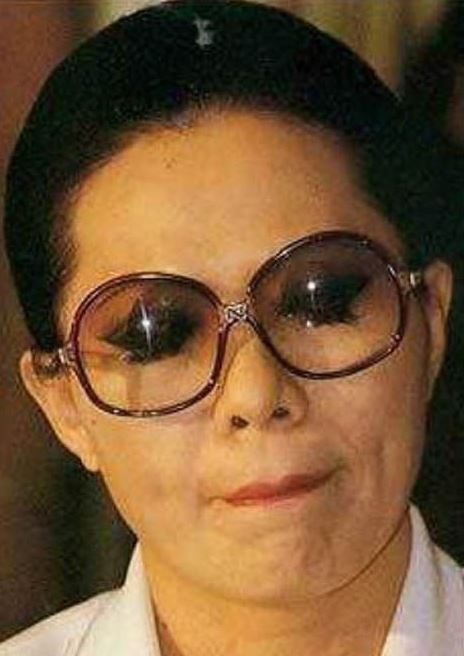The story of four high-profile suspects arrested in connection with a fraudulent investment ring estimated to have made off with at least 1 billion baht reminded us of an earlier hi-so fraud.
In the recent case, police detained “Lt Col Dr Amraporn Visetsuk, chairwoman of the Tiao Puea Chart (Travel for the Country) project, and three others, on charges of public fraud and collaborating in fraudulent public borrowing. All of them denied the charges.” The one who got away was “suspected ringleader Prasit Jeawkok, chairman of the Kuen Khun Pandin (Paying Back the Land) project…”.
The story gets more interesting:
Last year, Pannika Wanich, spokeswoman for the Progressive Movement, accused Mr Prasit of being behind the army’s now-discredited “information operation” (IO) and allowing the army to use the servers under his control for free.
Prasit himself has “boasted of his royalist credentials and unbuttoned his shirt to show a ‘Long Live the King’ tattoo on his chest. Even if he supported IO, he declared, it was a ‘good IO’.”
Prasit has been praised by the wealthy Yuenyong Opakul or Add Carabao who is also a mad monarchist, writing “the song ‘Prasit the Giver,’ praising his good deeds under the Kuen Khun Pandin project in July 2019.”
All of this is vaguely familiar to anyone old enough to remember the fantastic Mae Chamoy fraud case in the mid-1980s that saw Chamoy Thipyaso and seven others found guilty of corporate fraud and on 27 July 1989, sentenced her to 141,078 years in prison. She only served 8 years.
It was her connections with the military, and especially the Royal Thai Air Force and also with the Petroleum Authority of Thailand, saw her chit fund scheme go on for almost 20 years, providing huge returns to some at the top of the pyramid scheme.
As the linked report states:

Among her clients there were prominent members from the military and the Royal Household, which prompted calls for the Thai government to bail out the banks and chit funds. Discussions of an unknown nature were made with King Bhumibol Adulyadej, following which the chit fund was wound up and Thipyaso arrested. She was [d]etained secretly by the Air Force for a few days.
Thipyaso’s trial only commenced after the losses of the victims from the military and royal staff were recovered….
Paul Handley’s The King Never Smiles (pp. 308-9) has more on the scheme:
Chit funds were pyramid schemes that had blossomed over several years without intervention from the government, in part because many had strong government connections. One especially, the Mae (Mother) Chamoy Fund, was estimated at $300 million and involved large numbers of investors from the military and, it soon became apparent, the royal household, including probably Sirikit, Vajiralongkorn, Ubolrat, and Chulabhorn. With such prominent and politically significant people likely to lose massively in the Mae Chamoy collapse, [Gen] Arthit [Kamlang-ek] stepped in again. He threatened a coup if the government did not rescind the [recent baht] devaluation and bail out the banks and chit funds.
This time, King Bhumibol himself rescued [Gen] Prem [Tinsulanonda], without saying anything. Prem went to stay at the Phuphan Palace for nine days, and each day the media ran pictures of Prem with the king, queen, and crown prince. Making the message clear, when Prem returned to Bangkok he was escorted by Prince Vajiralongkorn and Chulabhorn’s consort Captain Virayuth. When Arthit then flew to the Phuphan Palace, Prem turned around and went back. What was said in their discussions with the king was not made public, but the episode ended with Prem still in power and Arthit unpunished for his series of mutinous acts. The devaluation stood and the Mae Chamoy Fund was shut down, but only after more backhall dealings managed by Prem. Fund manager Chamoy was arrested and held in secret by the air force until, it is believed, the losses of palace and military personnel and other high officials were recovered. Only afterward was she tried and sent to prison. Her hearing was held in camera and the records were sealed, presumably to protect the palace. Meanwhile thousands, possibly tens of thousands, of people who didn’t have special protectors lost their savings.
Are we completely mad to wonder if there aren’t some coincidences of news now and news then?
Update 1: Adding to the mystery and protection of fraudsters, it is reported that Prasit Jeawkok has done a deal with police to surrender to them on 17 May. It is common for influential people to arrange this kind of deal and arrive to meet police with influential figures and lawyers. At the same time, we are told that “the Second Army pledged the suspect, Lt Col Amaraphon, who is attached with the Second Army’s Support Command, will face punishment if she is found guilty.” That’s a familiar refrain, seldom ever carried out.
Update 2: Thai Enquirer has two op-eds on this case, here and here. Is anyone surprised that Lt Col Amaraphon already has bail? Scams like this produce huge cash flows for big shots.




















